UN Women Calls for Financing for Gender Equality in the HIV and AIDS Response
Date:
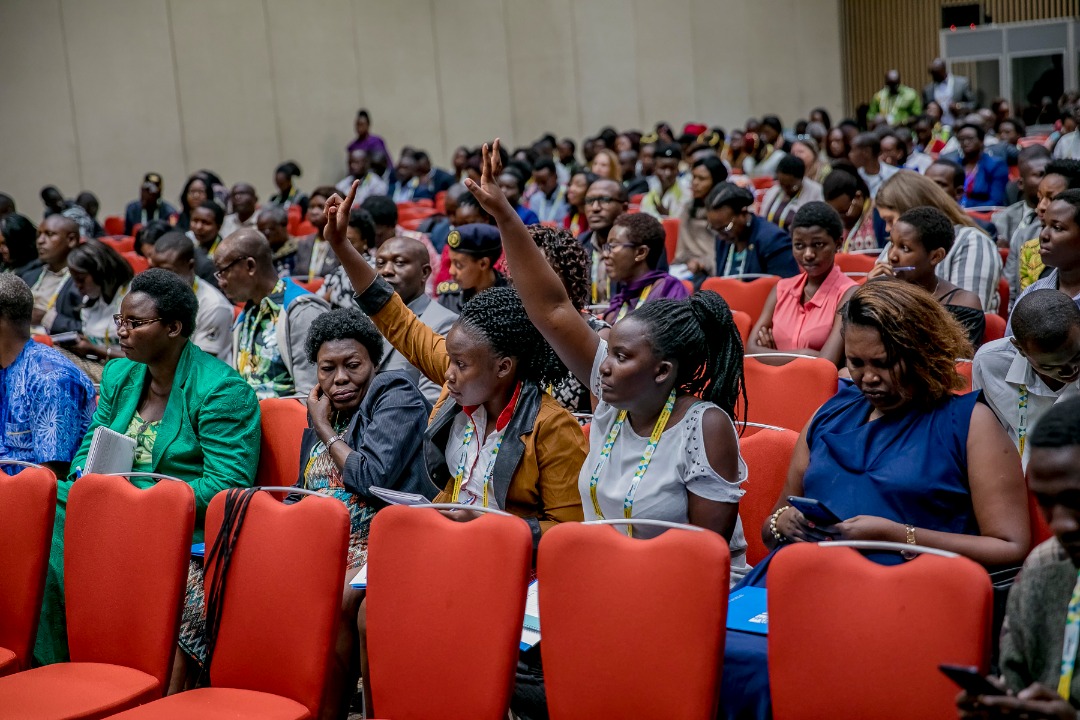
Kigali, Rwanda: As the world gathered in Kigali, Rwanda for the 20th International Conference on AIDS and Sexually Transmitted Infections in Africa (ICASA), UN Women rallied governments, development partners, private sector, civil society organizations and all stakeholders on the need of prioritizing and financing for gender related interventions in the context of HIV/AIDS responses.
In a satellite session on financing for gender equality in the HIV/AIDS response, co-convened by UN Women and UNAIDS, UN Women noted that despite strong commitments and growing evidence on what works to promote gender equality in HIV responses, it remains a challenge to ensure adequate financing for these interventions.
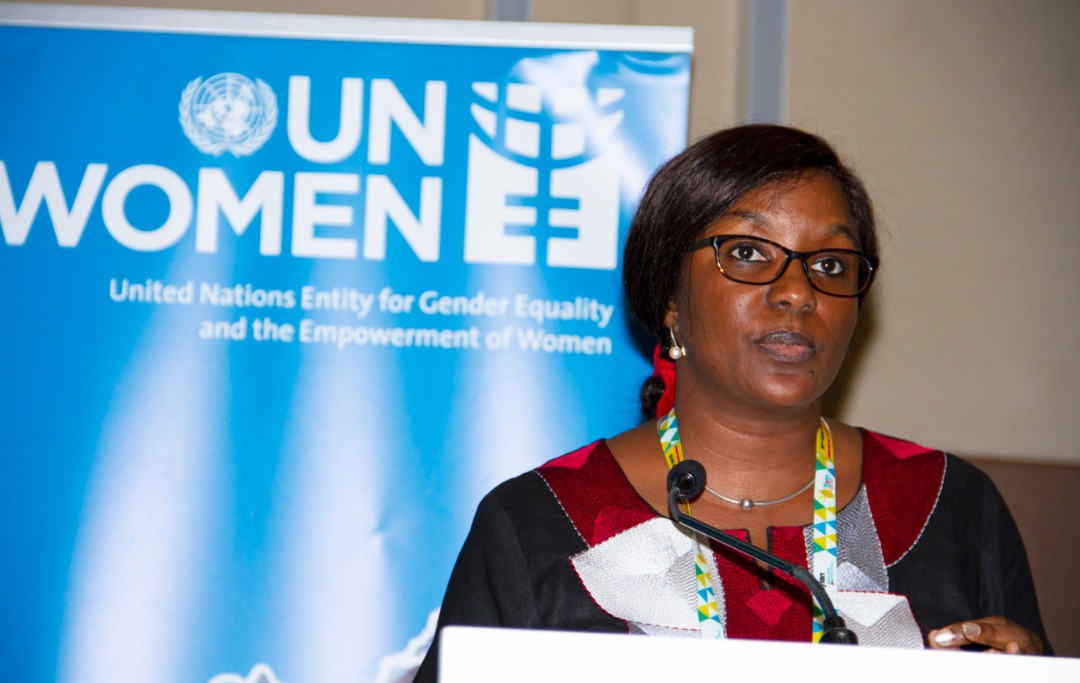
Fatou Lo, UN Women Representative in Rwanda giving her welcome remarks at the session. Photo/UN Women
In her opening remarks, Fatou Lo UN Women Representative in Rwanda emphasized that to achieve the current global goals, it is critical to understand and address the key barriers at micro, meso and macro levels that hinder women’s access to HIV treatment, as gender inequalities exacerbate the vulnerability to the HIV epidemic. This was echoed by Assumpta Ingabire, the Permanent Secretary in the Ministry of Gender and Family Promotion in Rwanda ‘‘Gender inequality and persistent power imbalances between men and women are among factors contributing to the increase of women’s vulnerability to the HIV epidemic. This vulnerability can further reinforce gender inequality, limit women’s participation in decision making, limit women’s access to education and economic empowerment and lead to new HIV infections and poor health outcomes for women, including death for women of reproductive age,’’ said the PS.
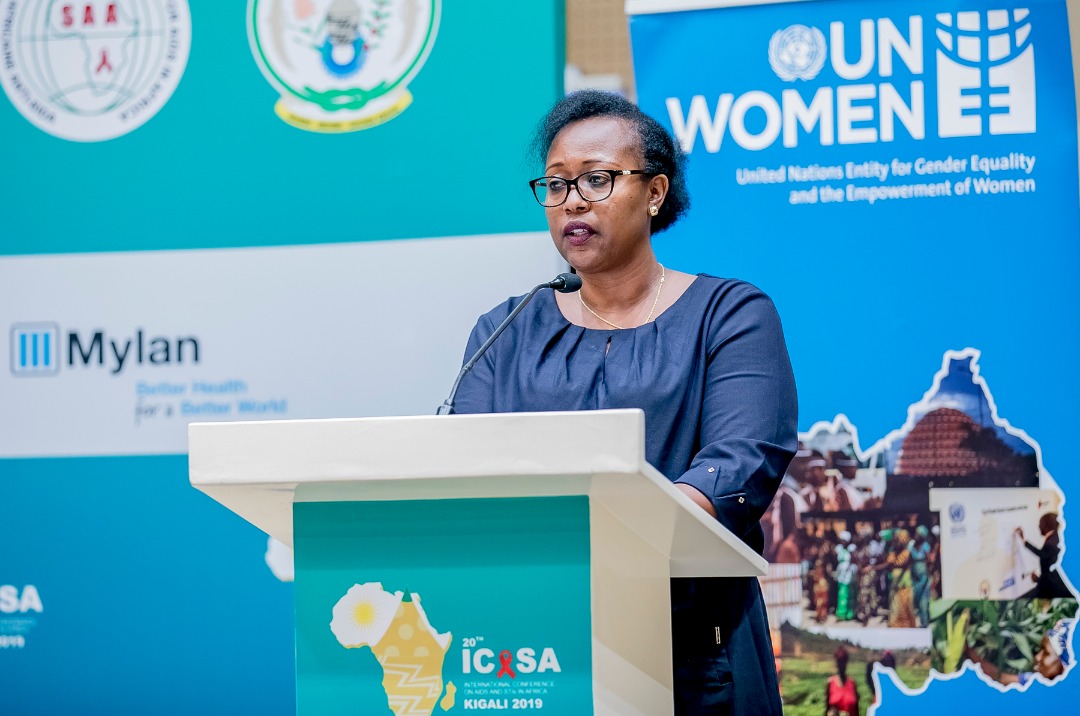
Assumpta Ingabire, Permanent Secretary in the Ministry of Gender and Family Promotion in Rwanda making her remarks. Photo/UN Women
From the panel discussion consisting of youth, caregivers, government and UN representatives, it emerged that it is critical to integrate gender equality as a working principle in both national and global HİV strategic actions, as well as the recognition that turning commitments on gender equality and the empowerment of women into actions requires greater and more sustained investment.
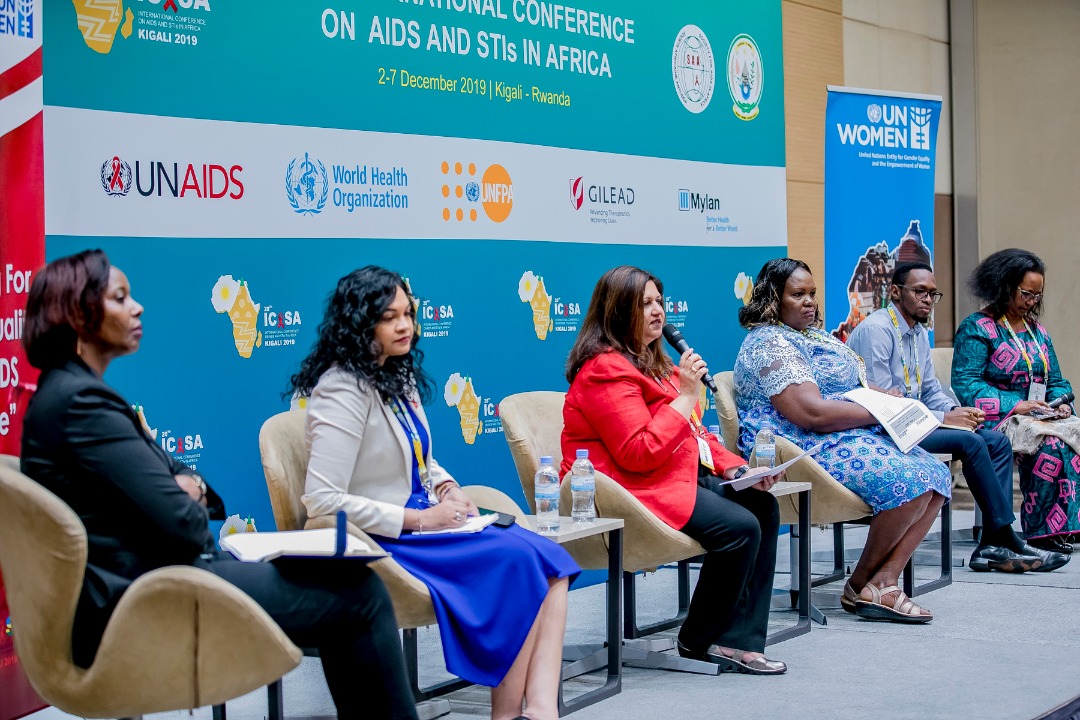
From left: Ms. Rehema Namutebi (Ministry of Economic Planning and Finance in Rwanda), Ms. Lavanya Vijayasingham (United Nations University Institute for International Global Health), Ms. Nazneen Damji (UN Women ), Ms. Violet Shivutse (Caregiver and Chair of Huwairu Commission), Mr. Nicholas Niwagaba (Uganda Network of Young People Living with HIV & AIDS) and Jacqueline Utamuriza Nzisabira (UN Women ) during the panel discussion. Photo/UN Women
On his part, Dr. Jean Pierre Nyemazi, the Permanent Secretary from the Ministry of Health in Rwanda called for innovative strategies that involve greater prioritization of gender equality from a financing perspective. ‘‘ The 2016 Political Declaration on HIV and AIDS marks the strongest commitment to gender equality to date, with a bold pledge to pursue transformative AIDS responses to contribute to gender equality and the empowerment of all women and girls. There is an urgent need for these commitments to be coupled with adequate funding, appropriate action, upscaling of results and increased accountability,’’ he noted.
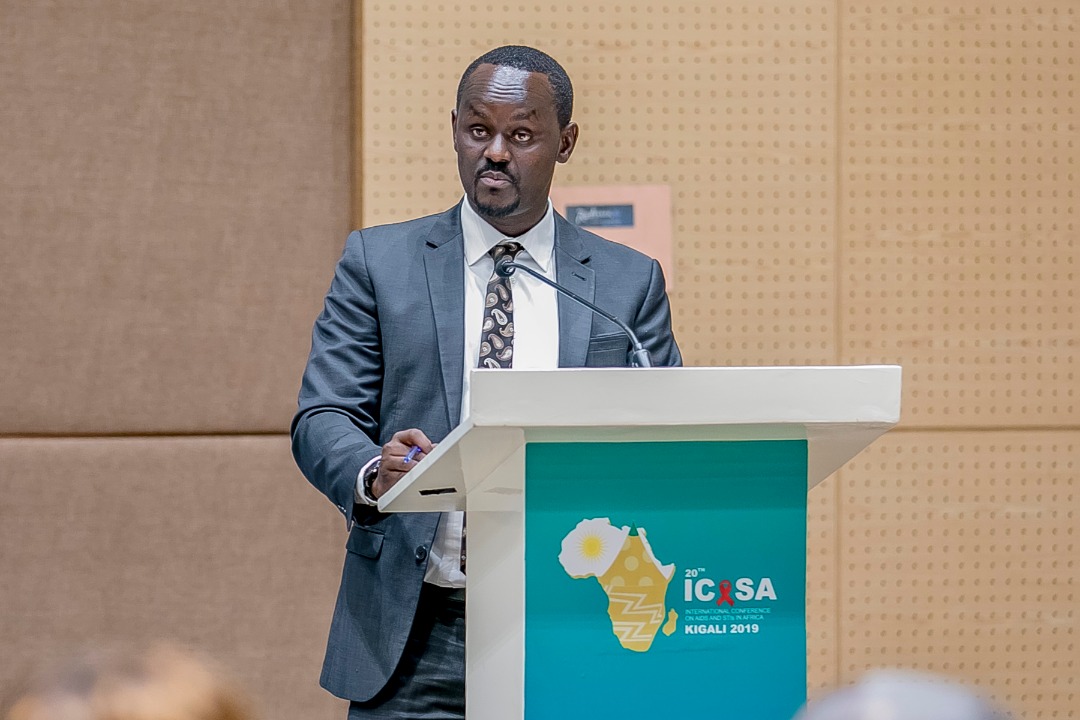
Dr. Jean Pierre Nyemazi, the Permanent Secretary from the Ministry of Health in Rwanda. Photo/UN Women
In the end, there was a clarion call for the following actions to be taken in order for gender financing to become a reality:
- Accountability measures to ensure that the resources impact the lives of women and families living with, and affected by HIV/AIDS, especially young women and adolescent girls;
- It is critical to address gender inequality and unequal norms that leave women in all their diversities susceptible to HIV and less able to mitigate its impact;
- There is a disconnect between commitments and actions to address gender inequality within the HIV response which requires urgent reviews/assessments of the HIV programmes to ensure they are gender-responsive; new tools need to be developed, or existing ones refined, to increase tracking of investments and costing of interventions that are gender-responsive or transformative and funds need to be adequately and appropriately allocated; and
- There is an urgent need to recognize and resource the work of communities in the HIV response. Shrinking civil society space is exacerbated by dwindling resources for communities - particularly women and girls - in their support as caregivers as well as providing services for people living with HIV, such as treatment adherence, food and nutrition needs, as well as their advocacy and mobilization efforts and engagement and participation in decision-making in the HIV response.
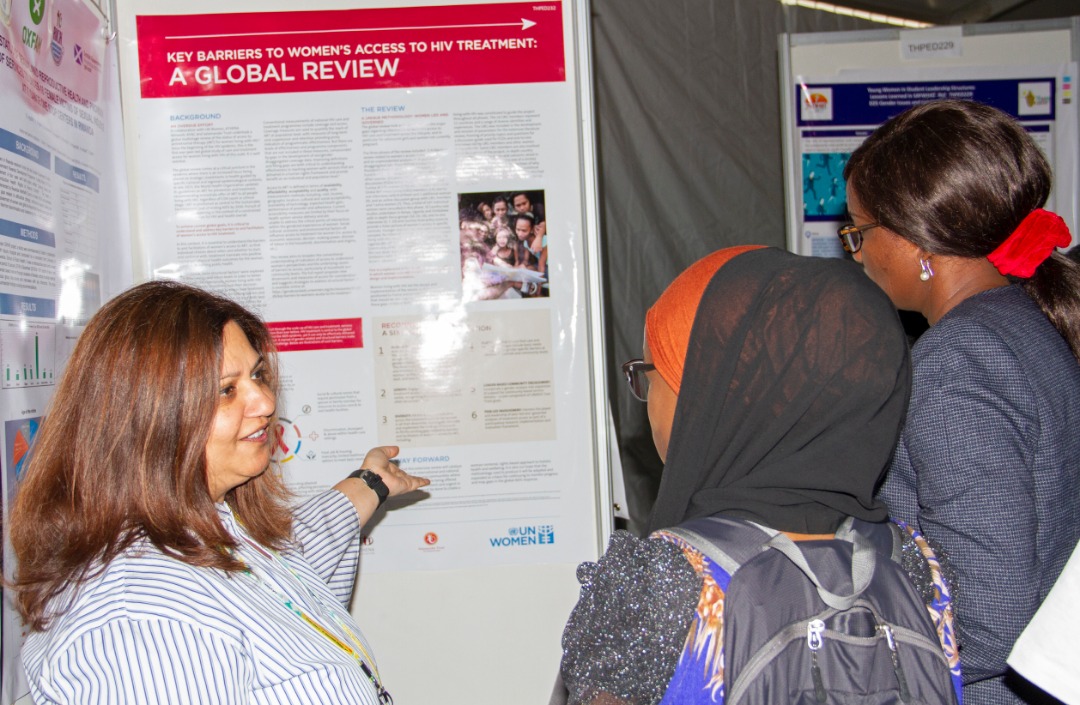
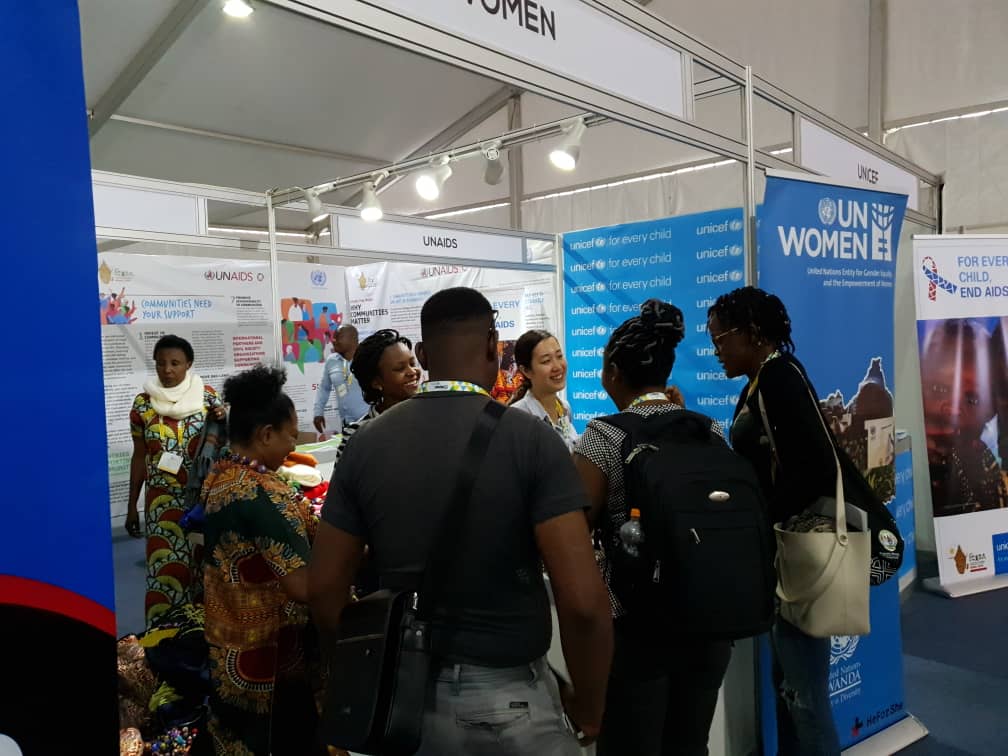
Ms. Nazneen Damji, UN Women Senior Policy Advisor on Gender equality, Health and HIV presenting UN Women’s abstract at ICASA and women living with HIV supported by UN Women projects in Rwanda showcase their work at the UN Women exhibition booth. Photo/UN Women